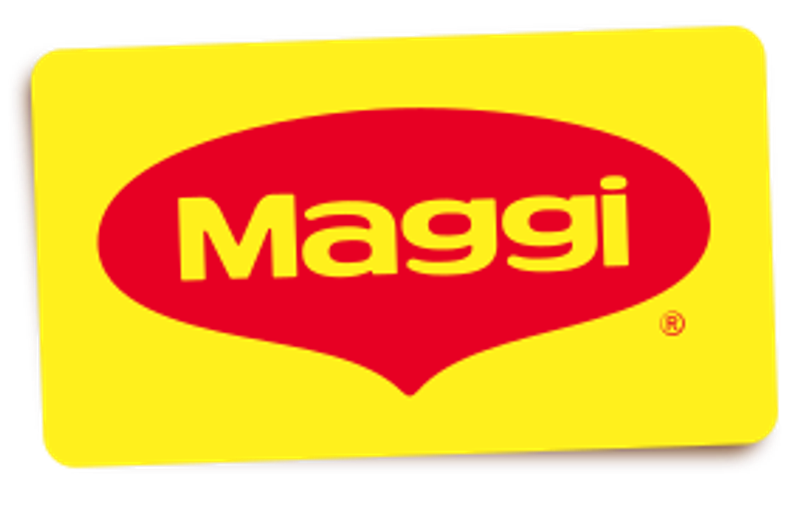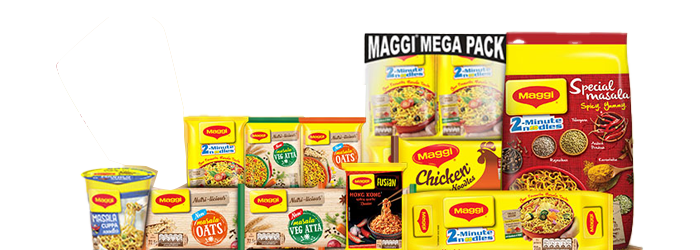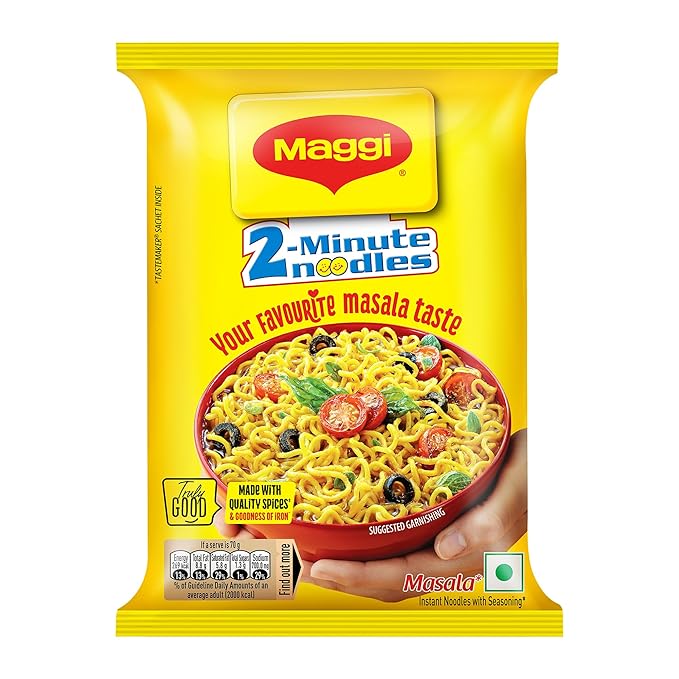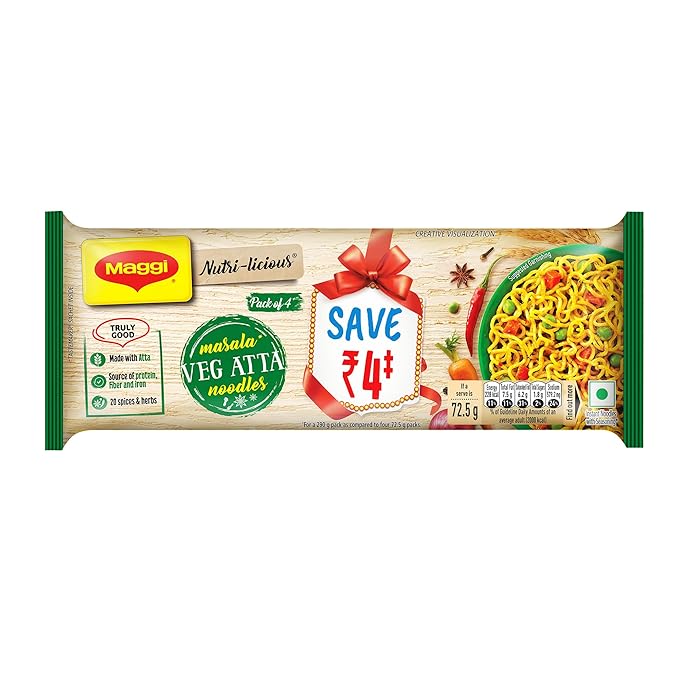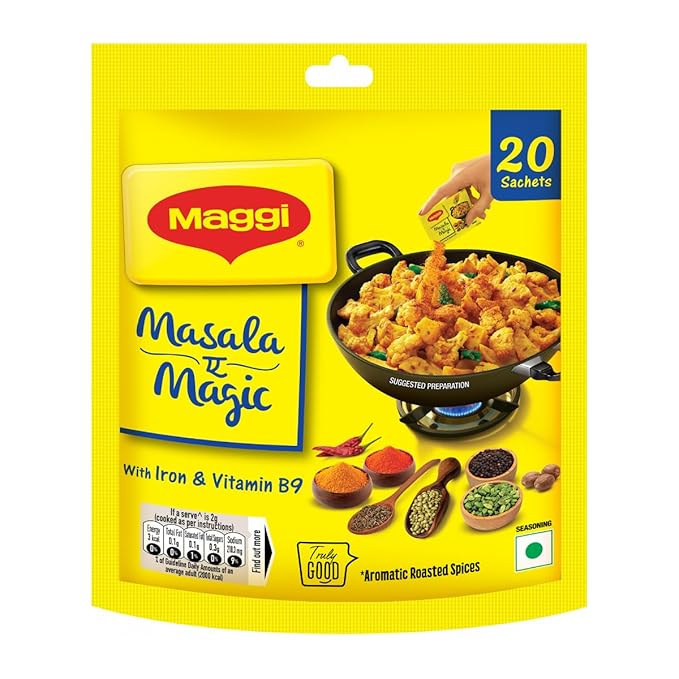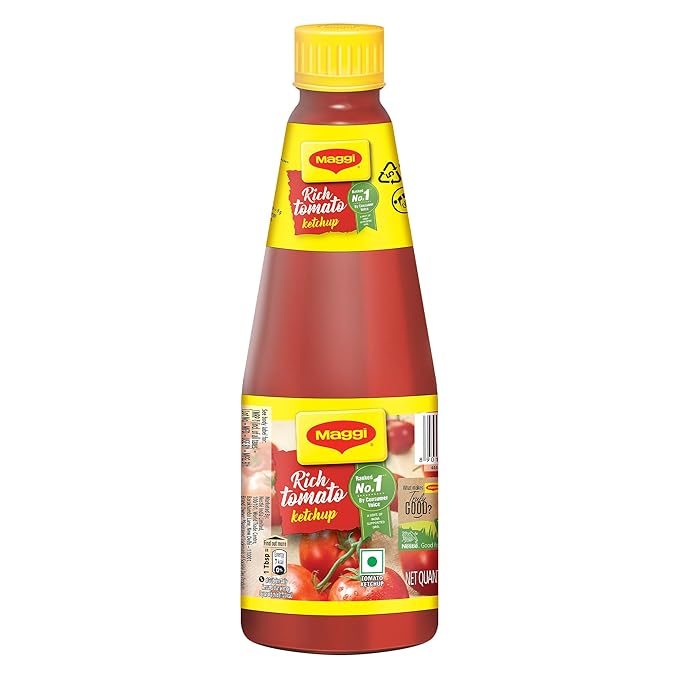Brand Overview
Brand:
Maggi
Parent Company:
Nestle
Core Categories:
Foods
Taglines Over the Years:
- Taste Bhi, Health Bhi
- 2-Minute Noodles
Market Entry & Context
India in 1983:
- Instant food was an alien concept.
- Home-cooked meals dominated, especially among middle-class families.
- Nestlé saw potential in busy urban households and working mothers.
- Introduced Maggi 2-Minute Noodles as a quick, easy-to-make, tasty snack for children.
- Positioned as “a mother’s helper”, solving the after-school hunger pangs issue.
Marketing Mix (4Ps)
Product Strategy
Unique Offering:
- First-of-its-kind instant noodle product in India.
- Custom flavor profile (“Masala”) developed specifically for Indian taste preferences.
- Flavors: Masala, Chicken, Atta, Oats, Tomato, Veggie, Cheese, etc.
- Formats: Cup noodles, fusion variants, Maggi Hot Heads, Special Masala.
- Beyond noodles: Maggi sauces, soups, pasta, and masala-ae-magic (spice mix).
Pricing Strategy
- Priced affordably to build scale and drive trial (Rs. 2 initially, Rs. 12–15 for single pack now).
- Smaller SKUs for rural/low-income consumers.
- Balanced value and volume with premium variants (Maggi Special, Nutri-licious range).
Promotion Strategy
Core Messaging:
- “2-Minute Noodles”: Instant gratification and convenience.
- Emphasized taste, ease, and mother-child bonding.
- “Mummy, bhookh lagi hai” (Mother-child love)
- “Fast to Cook, Good to Eat”
- “Taste Bhi, Health Bhi”
- Emotional nostalgia-led ads during the comeback post-2015 ban.
- Madhuri Dixit, Amitabh Bachchan, and influencers for digital-first campaigns.
Distribution Strategy
- Widespread availability: From modern trade to kirana stores to canteens.
- Deep rural penetration: Especially during the early 2000s with smaller pack sizes.
- Out-of-Home: College canteens, railway stations, tea stalls, and now food delivery platforms.
Competitive Landscape
Major Competitors:
- Sunfeast Yippee! (ITC)
- Top Ramen (Nissin)
- Patanjali noodles
- Wai Wai (CG Foods)
Competitive Edge:
- Early mover advantage.
- Superior distribution, emotional brand equity, and deep consumer insight.
Consumer Connection
- Became a cultural icon and comfort food.
- Associated with nostalgia, hostel life, late-night snacks, and emotional comfort.
- Inspired DIY recipes and UGC content — e.g., Maggi pakoras, pizza, omelettes.
Challenges & Crisis Management
2015 MSG Controversy:
- FSSAI banned Maggi noodles citing high MSG and lead levels.
- Nationwide product recall (≈ ₹500 crore worth).
- Brand temporarily pulled from shelves.
- Nestlé undertook extensive lab testing and legal battles.
- Transparent communication to rebuild trust.
- Relaunched with the campaign: “We Miss You Too” – emotionally reconnecting with consumers.
- Remarkable brand comeback in less than a year.
- Regained market leadership by 2017.
Innovations & Adaptation
- Health Variants: Atta Noodles, Oats Noodles, No Onion-No Garlic options.
- Premiumization: Maggi Fusion, Amritsari Achari, Laksa Delight, etc.
- Digital Marketing: Leveraged YouTube, Instagram reels, recipe communities.
- Maggi Kitchen Journeys: Branded content blending food, storytelling, and travel.
Current Position (as of 2025)
- Market Leader: >60% share in instant noodles category.
- Household Penetration: Among the highest in Indian FMCG history.
- Symbol of Resilience: Post-2015 comeback recognized as a case study in brand recovery.
- Brand Extensions: Now a broader food brand with sauces, soups, pasta, and condiments.
Key Learnings
- First-mover advantage works when coupled with consistent engagement and localized innovation.
- Emotional storytelling and authenticity build deeper consumer bonds than product utility alone.
- Crisis is an opportunity: Transparent handling and reconnecting with core values can drive stronger post-crisis equity.
- Versatility fuels longevity: Maggi’s ability to be reimagined by consumers gave it life beyond the brand’s original vision.
Summary
Maggi’s India journey is not just a story of a brand, but a cultural phenomenon. From being a foreign concept in the 1980s to becoming “India’s most loved comfort food”, Maggi has redefined the way Indians consume snacks and ready meals. It remains a case study in brand resilience, emotional marketing, and continuous reinvention.

